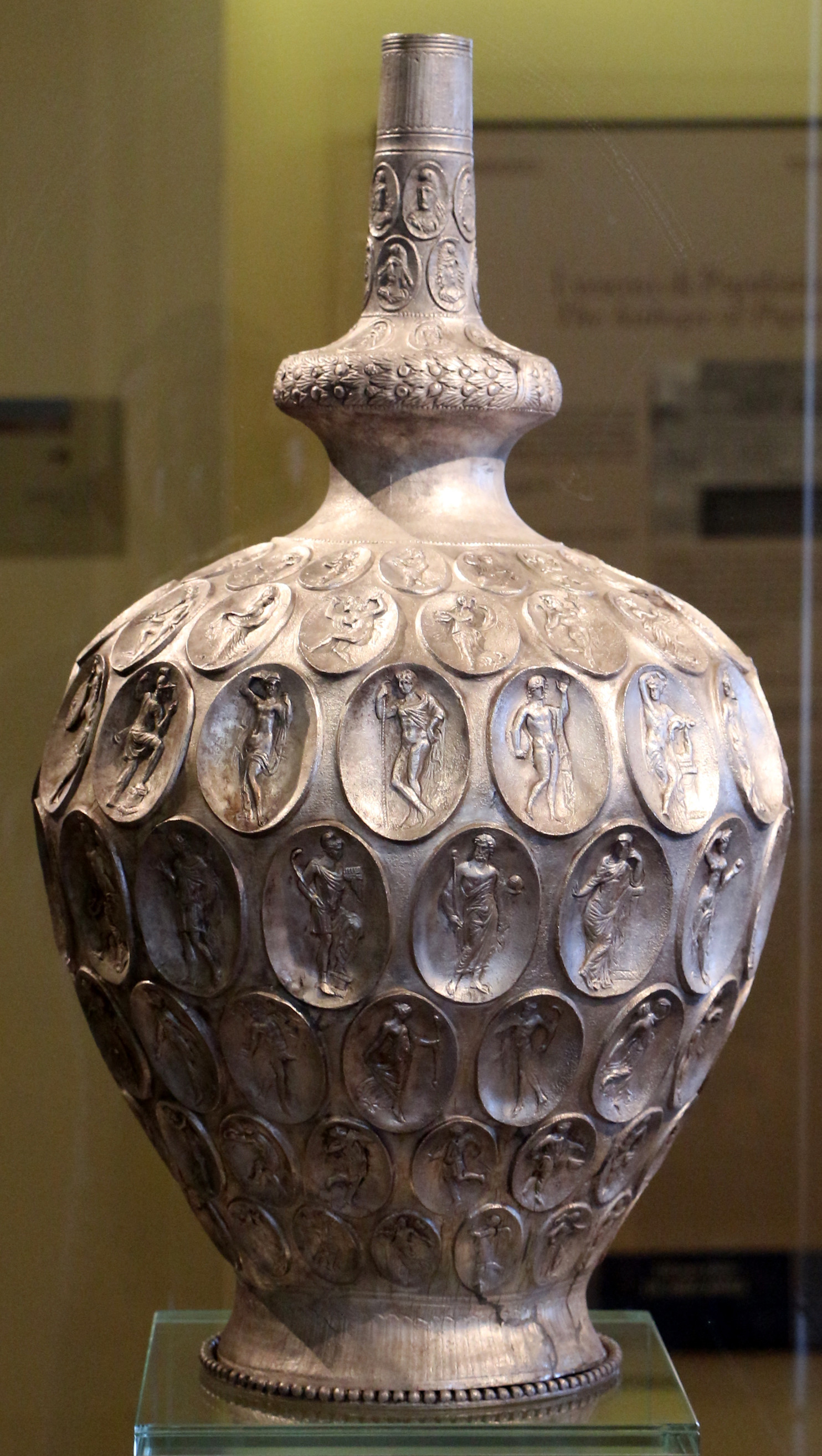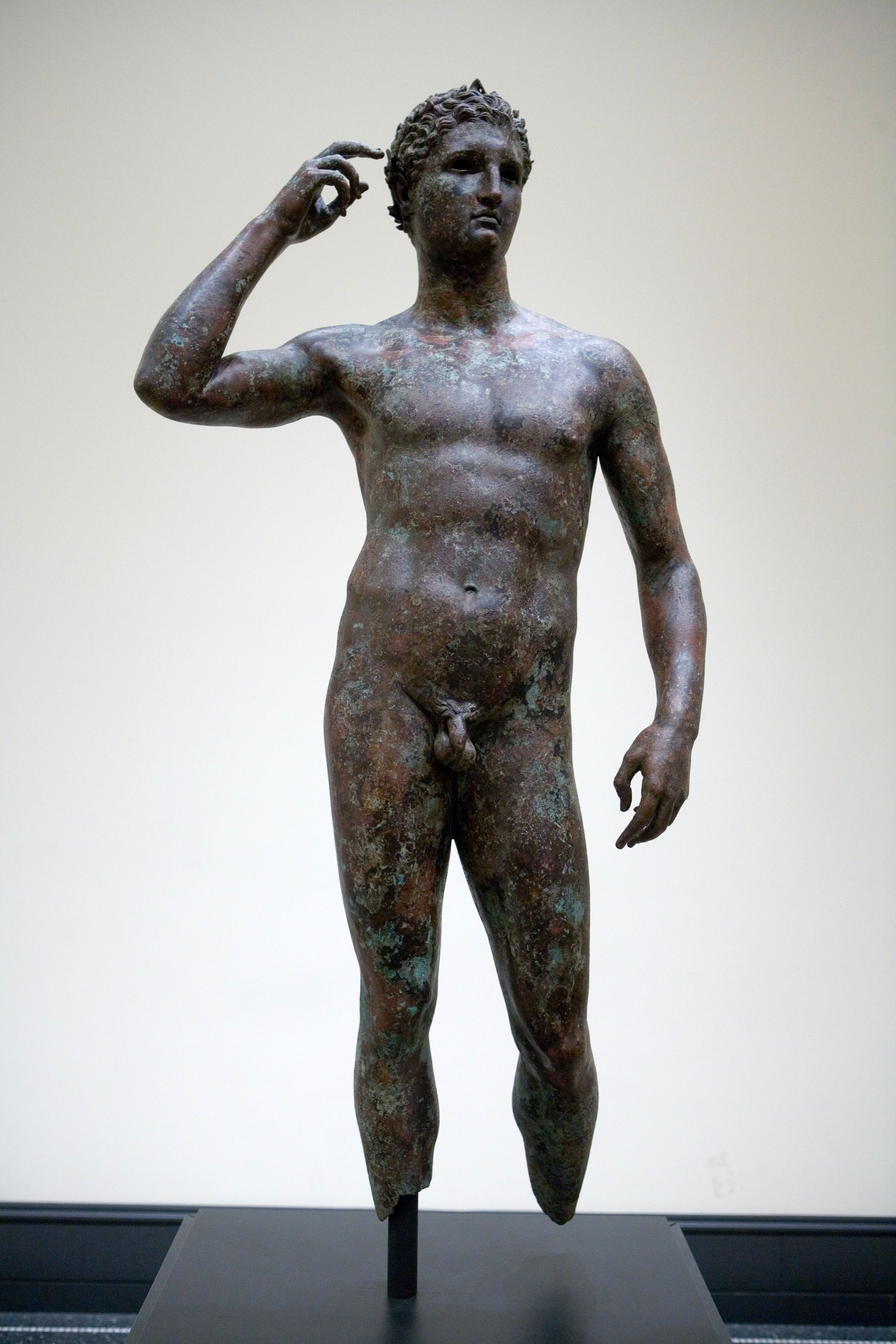The heart of civilization
It was a closed sea (thus it was believed to be in antiquity) that embodied in liquid form the eagerness to discover the new, thousands of years before Dante wrote Ulysses’ admonition to “pursue virtue and knowledge.” Trades, shipping, military trade routes, landings, population centers and colonies. Everything in the Mediterranean reminds us of or traces the inextricable web of history, watermarked by the frothy slime left by the vessels that began to sail it as soon as man had discovered and mastered the secrets of navigation, close to the coast, following the contours of the land, and finding others emerging from the water.
The Phoenicians, from the East, with their elegant cedar hulls, pot-bellied to hold as many goods as possible, brought glass and Tyrian purple dye made from the red-mouthed rock shell, which is still quintessentially the noblest color. Coming into contact with the Assyrians, Babylonians and Egyptians, and later the Persians, Greeks and Romans, civilization owes the invention of the alphabet to the Phoenicians in the 2nd millennium B.C. Their port bases became cities, which have lasted to this day, like Cadiz, or were destined to make history, like Carthage.

On the salty shores then came the Achaeans, the first Hellenic people, a term later used to describe all Greeks, who invented democracy and exported philosophy, architecture, the cult of beauty and the beauty of knowledge, even imposing their system with arms, with wars between city-states that nevertheless united to repel invasions, such as the epic clash with the Persians, on land and sea, at Thermopylae and Salamis. Then came Rome and everything—truly everything—changed, even in Magna Graecia in Italy.
Everything in the Mediterranean reminds us of or traces the inextricable web of history, watermarked by the frothy slime left by the vessels that began to sail it as soon as man had discovered and mastered the secrets of navigation
It happened when the regional power on the banks of the Tiber discovered that, in order to be truly great, it had to measure itself against the open sea by equipping itself with a fleet to travel along the Mediterranean routes. It copied, learned, developed, perfected, invented. It suffered from Carthage, came close to collapse with Hannibal, fought back and imposed its supremacy.
On land and sea. Carthage was razed to the ground and salt was spread where its power had stood to prevent a single blade of grass from being reborn. The Mediterranean was in fact the mare nostrum of the Romans, who with legions, with pacts (foedera aequa and foedera iniqua) and diplomacy, brought law and a mighty multi-national state system unrivalled in ambition and expansion.
Everything around the Mediterranean, as far as the Strait of Gibraltar already reached by the Phoenicians and Greeks, and as far inland as the Black Sea, is Rome: it is the Republic with its laws and power. In 212, Antoninus Caracalla granted Roman citizenship to all subjects, and the empire became universal with Christianity born in the east of Jewish monotheism, but so great that it had to split into two kingdoms under the banner of spiritual unity and no longer political unity.
When Rome fell in 476, the second Rome to take up its legacy was on the Bosphorus, Constantinople, then Byzantium, and finally coeval Istanbul. It was here that Justinian, in the 6th century, codified Roman legal knowledge and made it the basis of modern law, while in the West the barbarian invasions broke up the existing into an unstable new arrangement that fractured the Roman Mediterranean monopoly.
In the 7th-8th centuries came the Arabs, who called the sea of their raids and conquests the “sea of Rumelia,” or Roman-Byzantine Sea. The expansion of Islam and the reaction of Christian Europe in order to regain possession of the Mediterranean featured the singular role of the maritime republics Amalfi, Pisa, Genoa and Venice, engaged in extraordinary trade and commerce in the East and military expeditions that claimed bases, efficient ports of call and above all the safety of navigation.

Rivali tra di loro e non di rado in guerra, spregiudicate diplomaticamente, abilissime nell’arte di trattare con altri popoli anche lontanissimi, evolute nell’arte di costruire e condurre le navi, sapranno imporre le leggi del mare e il loro dominio fino a due eventi epocali inaffrontabili: la caduta di Bisanzio in mano ai turchi nel 1453 e, soprattutto, la scoperta delle Americhe nel 1492. Quest’ultimo evento, spalancando la prospettiva sul Nuovo Mondo e sulle sue immense ricchezze, spostò il baricentro dei traffici oltre quelle Colonne d’Ercole che gli antichi ammonivano a non oltrepassare.
Rivals with each other and not infrequently at war, unscrupulous diplomatically, skilled in the art of dealing with other—even very distant—peoples, and advanced in the art of building and conducting ships, they successfully imposed the laws of the sea and their rule until the occurrence of two impassable and epochal events: the fall of Byzantium to the Turks in 1453 and, above all, the discovery of the Americas in 1492. The latter, opening wide the door to the New World and its immense riches, shifted the center of gravity of trade beyond those Pillars of Hercules that the ancients warned not to cross.
Both Venice and especially Spain, despite their empire, fell from their role as naval powers in the 17th century because of the overbearing emergence on the scene of England, the island-nation that had made navigation its raison d'être, and that had risen from apprentice to unrivaled master: the Kingdom no longer needed to rent the flag of the Republic of Genoa to be feared and respected on the seas because it had made its own with a red cross on a white background. The Mediterranean seems far away but is instead the center of its interests, even at the cost of rivaling France, a centuries-old enemy, which instead overlooks it.
But the British with the Treaty of Utrecht in 1713 seized Gibraltar by forcing Spain to cede it, and from there they controlled what went out and what came in and had the final word on what happened in the warm sea from the only point that is projected into the ocean. Not even Napoleon would be able to drive out the British, who inflicted on him the bitter naval defeat at Trafalgar in 1805, before finally beating him at Waterloo. Even the birth of Italy came about, yes, on the impetus of the Risorgimento but mostly with British favor (and support), which saw in the nation-state of the Savoy a useful counterweight to the ambitions of the same-old France.
The opening of the Suez Canal (1869) threw wide the way to the Indian Ocean without having to circumnavigate Africa, which was moreover subject to European colonization. Trade, meanwhile, had taken on unprecedented dimensions, thanks in part to the evolution of naval engineering that had replaced sails with steam and later fuel.
The Mediterranean, in every historical era, has always been central to all forms of balance: commercial and military, rank and ambition, muscle power and political influence. All the way to the bloody clashes of World War I and especially World War II, to the local conflicts and the unresolved problems of the Middle East in contemporary times. It is part of its vocation, to be in the midst of the lands and to transfer their tensions and problems, hopes and grudges, hatreds and loves, with the breath of intersecting cultures and the wind of passions, even bitter, even excessive, even painful. It is his destiny, written in his name.
Salvatore Quasimodo, Mediterranean
It’s been many nights that the sea still sounds,
Lightly, up and down, along the smooth sands.
Echo of an enclosed voice in the mind,
that returns from time; and also this
gulls’ assiduous lament; perhaps
birds of the towers that April
drives towards the plain; already
you were near to me with that voice;
and I wish there might yet come to you
now, from me an echo of memory,
like that dark murmur of the sea.
Read
9 maggio 2023
An exhibition featuring 20 artists including painters, sculptors, photographers and performers, selected for their sensitivity to both the eternal and ancient beauty and the current complexity of Mare Nostrum
5 maggio 2023
For those who were born or grew up in Southern Italy, genetic memory, if not certain physical connotations, testifies to exchanges, conflicts, contaminations and treasures both material and cultural that were taken or lost, stolen and given away